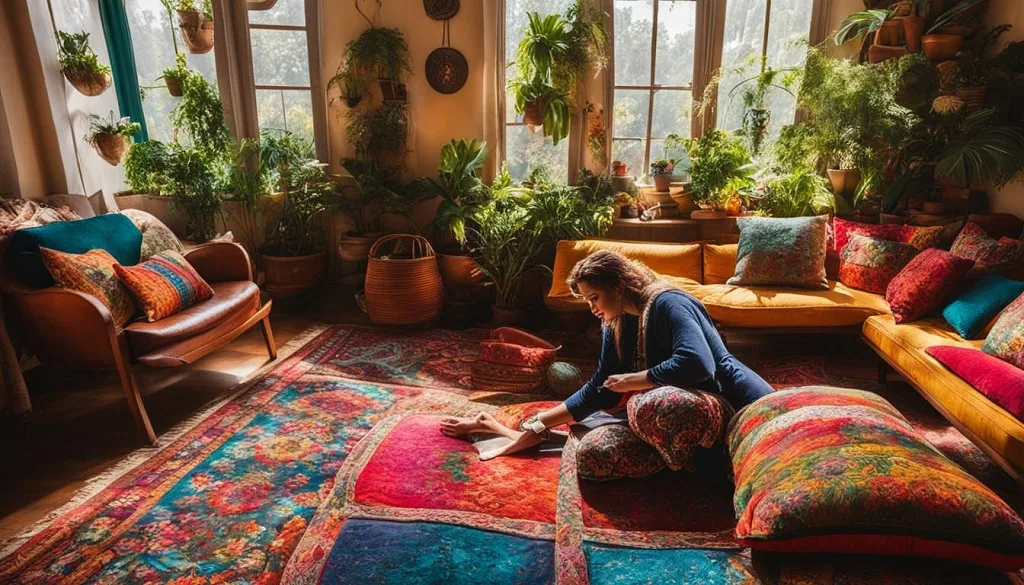
The Essence of Bohemian Lifestyle: An Overview
The Bohemian lifestyle, often romanticized and widely embraced, represents a free-spirited, artistic, and unconventional way of living. This lifestyle, which dates back to the 19th century, is characterized by its emphasis on creativity, individuality, and a rejection of mainstream societal norms. Here, we provide an in-depth look at the various facets of the Bohemian lifestyle, including its origins, core values, and modern-day practices.
Origins and Historical Context
The Bohemian lifestyle originated in the early 19th century among artists, writers, and musicians who sought to live life on their own terms. The term “Bohemian” was initially used to describe the nomadic lifestyle of the Romani people, mistakenly thought to be from the Bohemia region in the Czech Republic. Over time, it evolved to represent a community of individuals who rejected traditional bourgeois values and pursued a life of artistic freedom and exploration.
Historically, Bohemians lived in marginalized urban areas, forming close-knit communities where they could express their creativity without societal constraints. Paris’s Latin Quarter and Montmartre, as well as New York City’s Greenwich Village, became famous Bohemian enclaves where notable figures like Henri de Toulouse-Lautrec, Edith Piaf, and Bob Dylan thrived. These communities were characterized by their vibrant artistic scenes, open-mindedness, and a communal approach to living.
Core Values of the Bohemian Lifestyle
At the heart of the Bohemian lifestyle are several core values that guide the way of life for its adherents. Foremost among these is a commitment to creativity and self-expression. Bohemians prioritize artistic pursuits and often seek careers in the arts, whether as painters, musicians, writers, or performers. This creative spirit is coupled with a disdain for materialism and conventional success, favoring personal fulfillment and authentic experiences over wealth and status.
Another fundamental value is individuality. Bohemians cherish their uniqueness and often adopt eclectic fashion styles, decorate their homes with unconventional decor, and engage in diverse cultural practices. They embrace diversity and are often advocates for social and political causes, championing equality, environmental sustainability, and human rights. Community and connectedness also play crucial roles, as Bohemians often form tight-knit groups that support and inspire each other.
Modern-Day Bohemian Practices
Today, the Bohemian lifestyle continues to evolve, blending traditional elements with contemporary influences. Modern-day Bohemians, often referred to as “boho-chic,” embrace a mix of vintage and ethnic fashion, characterized by flowing fabrics, bold patterns, and handcrafted accessories. The fashion industry has seen a resurgence of Bohemian-inspired trends, with designers incorporating boho elements into mainstream collections.
Living spaces of modern Bohemians reflect their artistic sensibilities and love for nature. Interiors often feature an eclectic mix of furniture, vibrant colors, and plenty of greenery. DIY projects, upcycling, and sustainable living are common practices, reflecting the community’s commitment to environmental responsibility. Furthermore, digital platforms have enabled Bohemians to connect globally, share their work, and collaborate on creative projects, fostering a sense of global community.
In addition to fashion and living spaces, modern Bohemians are known for their adventurous spirit and love for travel. They seek out unique experiences, exploring off-the-beaten-path destinations and immersing themselves in different cultures. This wanderlust is driven by a desire to gain new perspectives, find inspiration, and live life to the fullest.
The Influence of Bohemian Philosophy on Personal Well-being
The Bohemian lifestyle is not only about external expressions of creativity and individuality but also about internal well-being and personal growth. Bohemians often practice mindfulness and meditation, valuing inner peace and mental clarity. They tend to lead more relaxed and stress-free lives, prioritizing experiences and relationships over material possessions.
The philosophy of minimalism, which often intersects with Bohemian values, encourages living with less and finding joy in simplicity. By focusing on what truly matters, Bohemians cultivate a sense of fulfillment and contentment. This approach to life promotes mental health and emotional resilience, helping individuals cope with the challenges of modern life.
Moreover, the Bohemian emphasis on artistic expression serves as a powerful tool for self-discovery and healing. Engaging in creative activities like painting, writing, or playing music allows individuals to explore their emotions, process their experiences, and connect with others on a deeper level. This therapeutic aspect of the Bohemian lifestyle contributes significantly to overall well-being.

Challenges and Criticisms of the Bohemian Lifestyle
Despite its many positive aspects, the Bohemian lifestyle is not without its challenges and criticisms. One of the main challenges is financial instability. Pursuing a career in the arts or other non-traditional fields often comes with uncertainty and irregular income, making it difficult to achieve financial security. Bohemians must navigate the delicate balance between following their passions and meeting their basic needs.
Additionally, the Bohemian rejection of conventional norms and societal expectations can lead to a sense of isolation or misunderstanding from the broader society. Bohemians may face criticism or judgment for their unconventional choices, making it essential to find supportive communities and like-minded individuals who share their values.
Critics of the Bohemian lifestyle argue that it can sometimes romanticize poverty and struggle, overlooking the practical difficulties that come with such a way of life. Moreover, the idealization of a carefree, artistic existence can be seen as a privilege accessible mainly to those with certain social or economic advantages. Addressing these criticisms involves acknowledging the complexities of the lifestyle and striving for inclusivity and sustainability within the Bohemian community.
The Future of the Bohemian Lifestyle
As society continues to evolve, so too does the Bohemian lifestyle. Looking to the future, the Bohemian ethos of creativity, individuality, and environmental consciousness is likely to become even more relevant. In an increasingly digital world, Bohemians can leverage technology to expand their reach, collaborate across borders, and innovate in their artistic endeavors.
Sustainability will likely remain a central theme, with Bohemians advocating for eco-friendly practices and sustainable living. The growing awareness of climate change and environmental degradation aligns with the Bohemian commitment to nature and simplicity. Future Bohemians will continue to champion green initiatives, from sustainable fashion to zero-waste living.
Ultimately, the Bohemian lifestyle represents a timeless pursuit of a meaningful, authentic existence. As long as there are individuals who value creativity, personal freedom, and a deep connection to the world around them, the Bohemian spirit will endure, inspiring future generations to live boldly and beautifully.
